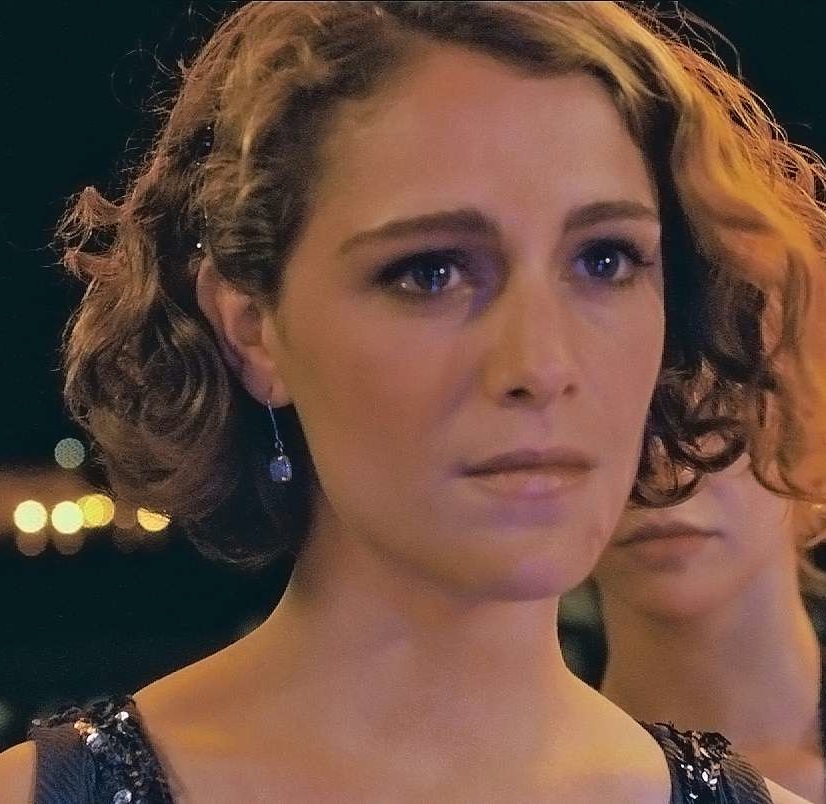By providing your information, you agree to our Terms of Use and our Privacy Policy. We use vendors that may also process your information to help provide our services. This site is protected by reCAPTCHA Enterprise and the Google Privacy Policy and Terms of Service apply.
Locarno Review: If Judd Apatow Made a Lesbian Sex Comedy, It Might Look Something Like ‘Love Island’
Eric Kohn

Imagine “Forgetting Sarah Marshall” with more progressive sexual politics and you might start to get a sense for “Love Island,” the spritly English language comedy from Bosnian director Jasmila Zbanic.
Set at an Adriatic resort, the movie revolves around a giddy young couple vacationing on the brink of giving birth to their first child. Naturally, things go awry, with the couple’s future challenged by conflicting desires and priorities. But Zbanic, a filmmaker best known for bleak drama “Grbavica” (which dealt with wartime trauma), brings a canny sensibility to the run-of-the-mill plot.
The scenario kicks off with the high energy Grebo (Ermin Bravo, whose exaggerated machismo suggests a Bosnian Russell Brand) delivering a ridiculous karaoke performance of “Winds of Change” at the local bar while his pregnant wife Liliane (Ariane Labed) watches with bemusement. The awkward tension between them, as they anticipate an imminent family life, sets the stage for its possible endangerment.
It’s there that the duo encounter the seductive local Flora (Ada Condescu), who has a romantic past with Liliane — which Grebo, secretly attracted to the new woman, barely detects. Drooling over Flora while attempting to keep his wife at bay, Grebo remains oblivious to the possibility that he’s not the only one harboring a secret crush. But that’s just one of several tantalizing possibilities in this unseemly love triangle, which manages to upend conventions even as it plays into some of the more obvious ones.
While Grebo continues to stalk Flora and the two women rekindle their romance behind his back, Zbanic maintains a lively comedic atmosphere defined by goofy dialogue and miscommunication. On the whole, the story channels the boyish humor of Judd Apatow-produced comedies — but suggests a more well-rounded alternative that places greater emphasis on its female leads and includes bisexuality as a major plot device.
Even so, it never seems as though “Love Island” aspires to break free of its traditional narrative: We know from the get-go that there will be some confrontation about the couple’s future prospects, so that no matter the intriguing themes involving conflicting values hanging in the background, “Love Island” repeatedly hits the same familiar beats.
 But considering the obviousness of its plotting, “Love Island” largely manages to sustain its humor throughout. Among the three central characters, Flora remains the least developed, a kind of sexpot agent of change that sets the main story in motion. Yet Liliane, caught between her wild past and more conservative present, remains a believable character impressively embodied by Labed (in her first traditional role following more stylistically daring efforts in “Attenberg” and “Alps”).
But considering the obviousness of its plotting, “Love Island” largely manages to sustain its humor throughout. Among the three central characters, Flora remains the least developed, a kind of sexpot agent of change that sets the main story in motion. Yet Liliane, caught between her wild past and more conservative present, remains a believable character impressively embodied by Labed (in her first traditional role following more stylistically daring efforts in “Attenberg” and “Alps”).
Whereas “Attenberg” showed the actress’ willingness to explore sexual identity in an outlandish fashion, in “Love Island,” she takes the opposite approach. Labed inhabits her archetypal role with a savviness that suggests her intentions of deconstructing it, and the screenplay provides the right opportunity by toying with the conventions of crass, joke-a-minute escapism against the backdrop of more advanced motives. As her husband, Bravo manages to come across as a lovable partier despite his sexist demeanor. It’s a paradox similarly embodied by the movie itself.
Though the cartoonish plot veers all over the place and doesn’t always hold together, Zbanic’s colorful atmosphere remains in place. The recurring dance floor setting injects a musical energy into the story and provides its best set pieces, including a nutty climax in which Labed performs “Island of Love” with a gusto worthy of Marilyn Monroe — but considering the baby bump that figures into her performance, registers as wackier than anything in the blond bombshell’s filmography.
Still, in light of the movie’s liveliness, it’s hard not to feel as though “Love Island” only hints at the sexually liberated romp at the root of its scenario. So committed to its feel-good style, “Love Island” goes down easy, and it would be counterintuitive to complain about the rudimentary nature of its entertainment value. It’s that very quality, after all, that suggests even a stupid comedy can offer up a few smart ideas.
Grade: B
“Love Island” premiered this week at the Locarno Film Festival. It does not currently have U.S. distribution.
By providing your information, you agree to our Terms of Use and our Privacy Policy. We use vendors that may also process your information to help provide our services. This site is protected by reCAPTCHA Enterprise and the Google Privacy Policy and Terms of Service apply.
















